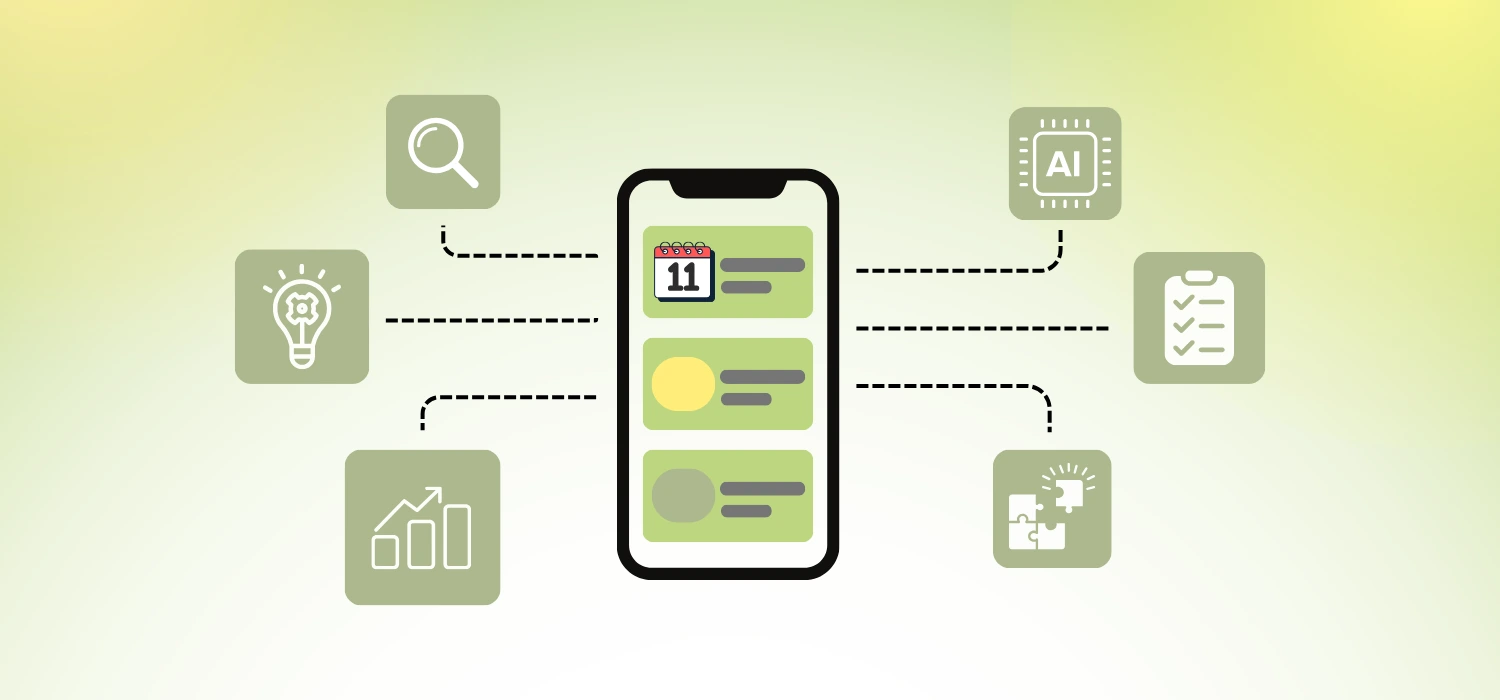Join our newsletter for the inside scoop on Jublia and the events industry


Event planning is a complex process involving many different steps, from setting goals and objectives to marketing and executing them. With proper planning and execution, it is possible to create an event that is both memorable and valuable for attendees. While there are many factors that contribute to a successful event, one of the most important pertains to attendee experience. When attendees have a positive experience, they are more likely to stay engaged throughout the event, learn more from the content, network with other attendees and share positive feedback with their networks, thus boosting your event ROI.
Mapping out the event attendee journey allows event organizers, managers, and marketers to maximize the performance, efficiency, and effectiveness of their events and create an impactful attendee experience.
Attendee experience is among many of the metrics that help you determine your event’s success. It does so by considering the entire guest journey and seeking to delight them at every step. Keeping attendee experience at the forefront of your planning process allows you to apply design thinking to the challenges and opportunities of your events, resulting in immersive experiences that will delight attendees.
Gaining insight into the event attendee perspective requires understanding their journey. This empathetic approach for event design, encourages event planners that “letting go of what you think you know so that you uncover gaps in and opportunities for what your audience needs,” according to Meetingsnet.
The importance of the attendee experience in event planning shouldn’t be overlooked. Mapping out the attendee experience and journey can be used as a step-by-step tool to visualize their perspective even before the event goes live. Event planners can identify and address areas of weakness where the attendee experience suffers by going through each touchpoint. By doing so, we are providing the attendees with a positive event experience, which means they are more likely to stay engaged throughout the event, and can efficiently move about the event learning and networking, contributing to a positive impact on ROI through both tangible metrics and intangible metrics such as lead generation and brand awareness.
When considering your attendees’ experience at events, you must take into account the journey they go through as a whole. Consider what a typical attendee wants and map out the ideal experience, from pre-event to post-event.

To ensure your event’s success, the months, weeks, or days leading up to your event are prime times to showcase what your event has to offer. Launching a Public Hub, where your audience can view your event’s sessions, keynote speakers, sponsors and exhibitors prior to registration, can entice them to engage and interact with your event site (e.g. favoriting sessions, scheduling meetings, exploring the event venue beforehand, are examples of metrics that can be tracked). This would lead to an overall positive experience for your attendees even before the event, thus contributing to ROI!
Next comes the actual day(s) of your event. Here, your attendees will be going to sessions, visiting exhibitor booths, and mingling with other guests. You want to make sure that they are able to move about their day efficiently, and that they are able to do the activities they have planned, and preferably not missing any.
And finally, there are the post-event activities. Providing feedback or downloading or watching content on-demand are some ways in which your attendees continue to interact with your event, thus highlighting the importance of post-event engagement as a part of the event attendee experience, and its contribution to your event ROI.
By repositioning the attendee journey and planning your events around this, you create a richer experience for attendees and a better ROI for yourself.
The attendee experience is a critical factor in determining the success of an event. By focusing on creating an engaging experience, event organizers can increase ROI and achieve their event goals. Attendee experience is essentially the sum of all the interactions that they have for an event, from the moment they first learn about the event to the moment they leave, or even after. This creates plenty of room and touchpoints to address or improve upon the attendee experience. A positive attendee experience is necessary for engagement, which considers the level of participation and interaction that attendees have with the event content and each other. Attendees who have a positive experience are more likely to participate in sessions, network with other attendees, and share their experiences with others.
According to Adobe, “engagement metrics provide a litmus to measure how attendees are enjoying your event”, meaning that engagement is directly correlated with event ROI, as it is a key driver of lead generation, sales, and brand awareness. There are a number of metrics that can be used to measure engagement including, attendance rates, session participation, networking activities (meetings scheduled, meetings held). By tracking these metrics, event organizers can get a clear picture of how well events are performing and identify areas for improvement, therefore impacting event ROI.
Now that you’ve mapped out the attendee journey and experience, you can now see what improvements to make and what kind of metrics to track. Additionally, you can focus on your attendees’ reasons for attending your event. Is it to network? Is it to gain more knowledge? By identifying their goals, it can give you a better idea into how to improve your event design to accommodate these. An all-in-one Engagement Hub offers the tools and solutions needed for you to enhance the touchpoints identified in your attendee experience journey.
An attendee’s experience at events is rooted in personalization and efficiency. This can be achieved through the use of event tech. Event tech provides the digital tools/platform to enhance the attendee experience and help them gain the most authentic event experience.
Personalization can improve the event attendee experience by making it more relevant and engaging. This can be achieved by using event tech such as Jublia, that is powered by AI and machine learning where the data inputted and engagement activities in its platform can help create a personalized agenda with suggested sessions, speakers, and networking opportunities that are relevant to each attendee.
Organizers are also able to collect relevant and valuable data which can be useful either to improve the attendee experience in real time (such as sending push notifications on D-day as reminders for upcoming sessions or meetings in their agenda) or for future event planning purposes.

Additionally, personalization and efficiency can apply when it actually comes to how your attendees will navigate through your hall(s) during the event days. Here, having AI-powered maps as a feature will help your attendees with wayfinding. For instance, based on their personalized schedule that was created before the event days, the Maps feature can show your attendees where sessions/ meetings are located, if it is located in the same or a different hall, and even provide the best route to go from one location to another.
Have all of this information and features handy in the palm of your hand, by utilizing a native event app. The event agenda, AI maps, push notifications and messaging platforms are available to view and use on a mobile device, making it easy to access for attendees. Additionally, utilizing networking features such as lead generation tools can be used on a mobile device, enabling simple contact exchange and discussion follow-ups for post-event.
Of course, these are just some of the ways in which you can enhance your attendees’ event experience. Each attendee’s journey and experience can definitely vary, but anticipating this and planning your event around these experiences, will provide your attendees with a positive experience throughout the various touch points, thus contributing to the success of your event and a return on investment.

A well-planned event with great attendee experience will not only leave a lasting impression, but also help you achieve your event goals and contribute to your event ROI. Jublia’s comprehensive Engagement Hub allows you to maximize your ROI through improvements in the attendee experience with its suite of digital solutions. To learn more, connect with our Solution Specialists at info@jublia.com and follow us on LinkedIn to get the latest updates!
 From AI-Powered to AI-Native: Why Event Platforms Need to Learn
From AI-Powered to AI-Native: Why Event Platforms Need to LearnWhy “AI-powered” isn’t enough – and how AI-Native platforms actually change how events run
 Building Sustainable Connections at Hong Kong’s Flagship Event for Sustainable Business
Building Sustainable Connections at Hong Kong’s Flagship Event for Sustainable Business A Case Study on ReThink HK 2025
 Attendee Behavior Patterns You Shouldn’t Ignore
Attendee Behavior Patterns You Shouldn’t IgnoreUncover how understanding attendee behavior turns raw engagement data into actionable insights


